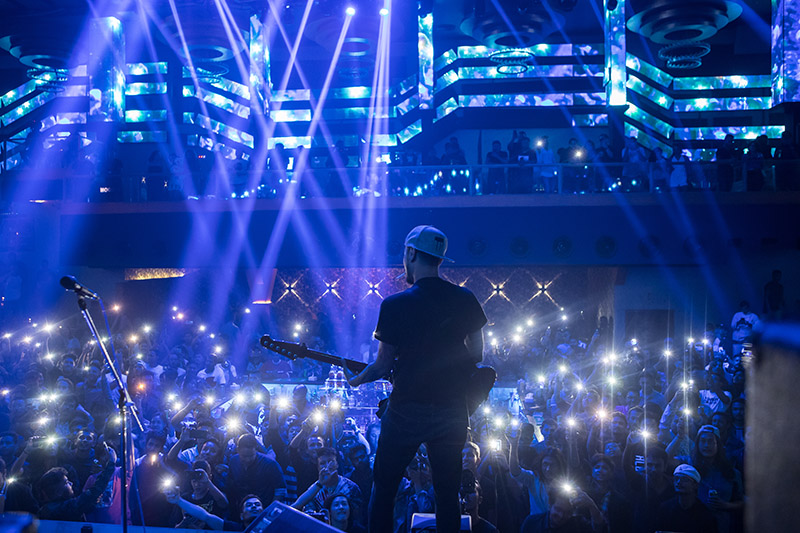Off the stage, but not out
Kathmandu
The coronavirus pandemic and the need to contain it through lockdown, isolation and social distancing has brought the ever-growing vivacious entertainment industry to standstill globally. It is evident here too. National and international tours, musical festivals and events were cancelled or postponed in no time. Though our artistes have chosen to see the brighter side in the crisis while presenting their art through social media, there is no doubt that concerts and other live performances which are the main source of revenue for many artistes has directly been hit.
Every sector has been impacted by the crisis of coronavirus. So has the entertainment scene, observes singer Dharmendra Sewan.
“Music is needed where people are happy and looking to have fun. Moreover, the musical events are mass events. But now there is the need for social distancing,” the Herda Ramro singer cites. Sewan was in talks with an event company for several international shows. Now it is on hold due to the ongoing situation. As per him, Nepali artistes, who are active in the music scene and talented, are in demand for stage performances and usually take on two-three concerts abroad as well as outside of Kathmandu Valley. If such opportunities are gone, “it is a big loss,” Sewan shares.
Many of the artistes had to cancel or postpone their tours and concerts. Senior eastern classical singer Manmohan Thapaliya had to cancel his March 21 performance to be held in the Valley and his other concerts in India and Thailand have been postponed for now. Similarly, the concert plans of Bhishan Mukarung, also General Secretary of Performers Society of Nepal, including his upcoming solo concert was cancelled. He shares, “There is no mood for creativity amidst the fear.”
Along with income, flautist of The Triplets Ashish Maharjan reveals that they have had to miss out on lots of good events and shows during this period. “The season from the end of February to April/May is the season for more gigs in Kathmandu and Pokhara, more crowds and more income — the weather is clear and it is the tourist season,” shares Maharjan, whose band perform in Thamel once a week.
This also means missing out on making contacts with music enthusiasts which is more important than money. “There are people who come to Nepal to know more about our music and for research,” he points out. Nonetheless, he is sharing his art on social media. Also playing in the live music scene of Kathmandu is Sagar Thapa Magar with his band Dynamix. They used to play six days a week around Thamel and Durbar Marg. Though the coronavirus crisis and the lockdown have halted their gigs, he sees this time as “a time to improve oneself”.
“This is the space for us to do our projects and practise our music,” says Thapa Magar. His band is working on their new music.
Amidst all the fear of COVID-19, Thapaliya says he is looking at other kinds of activities like music studies, teaching and playing music over the Internet and motivating people through his music.
“Times are challenging. You can’t go out and you are playing your music through social media,” he shares, “There is no earning but money is not everything. Even money can have virus these days.” Sewan is also looking to create a healing environment through music. As a “responsible” artiste, he is catering entertainment as well as healing to his fans — he went live with his music on Facebook on New Year’s Eve. Though stage performance is on a standstill now, Sewan believes music is what will be needed when the crisis of COVID-19 is over. People will need music to heal from what they are going through now, he opines.
“There will be live performances again to heal people. Live performance music scene will rock again.” However, Mukarung believes that the entertainment scene will not spring back immediately like many other sectors.
“Songs and music is a performing art which involves a gathering of people and having fun. Right now we are expected to maintain social distancing due to the virus and this will directly impact the performing artistes and the performances — one may enjoy music at home but going to concerts in groups, people will need to be mentally ready for it,” he explains.
He feels it will take some time from one-and-half to two years to recover, until a cure is found and that has reached people.
A version of this article appears in e-paper on April 24, 2020 of The Himalayan Times.






